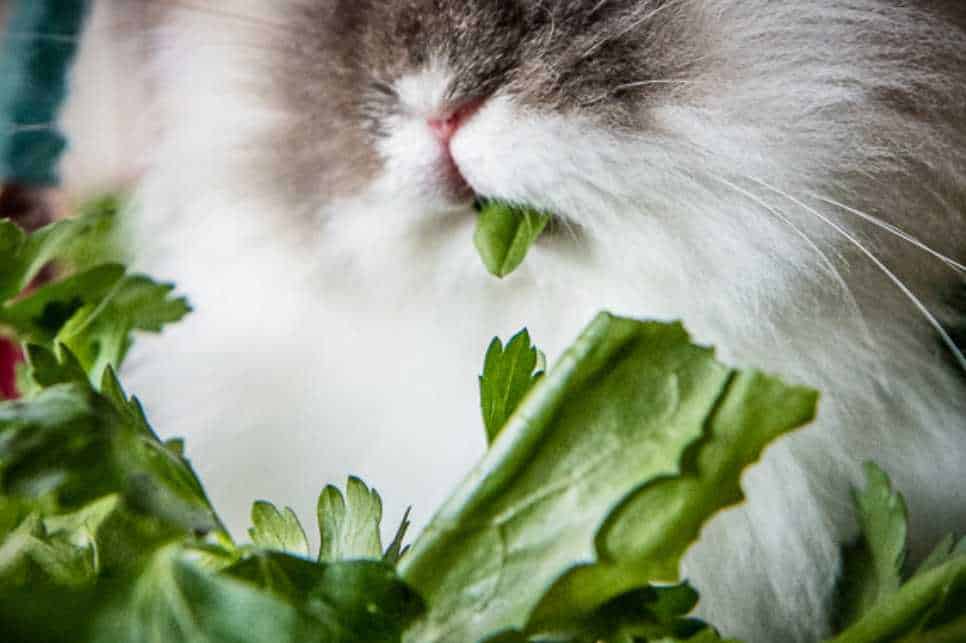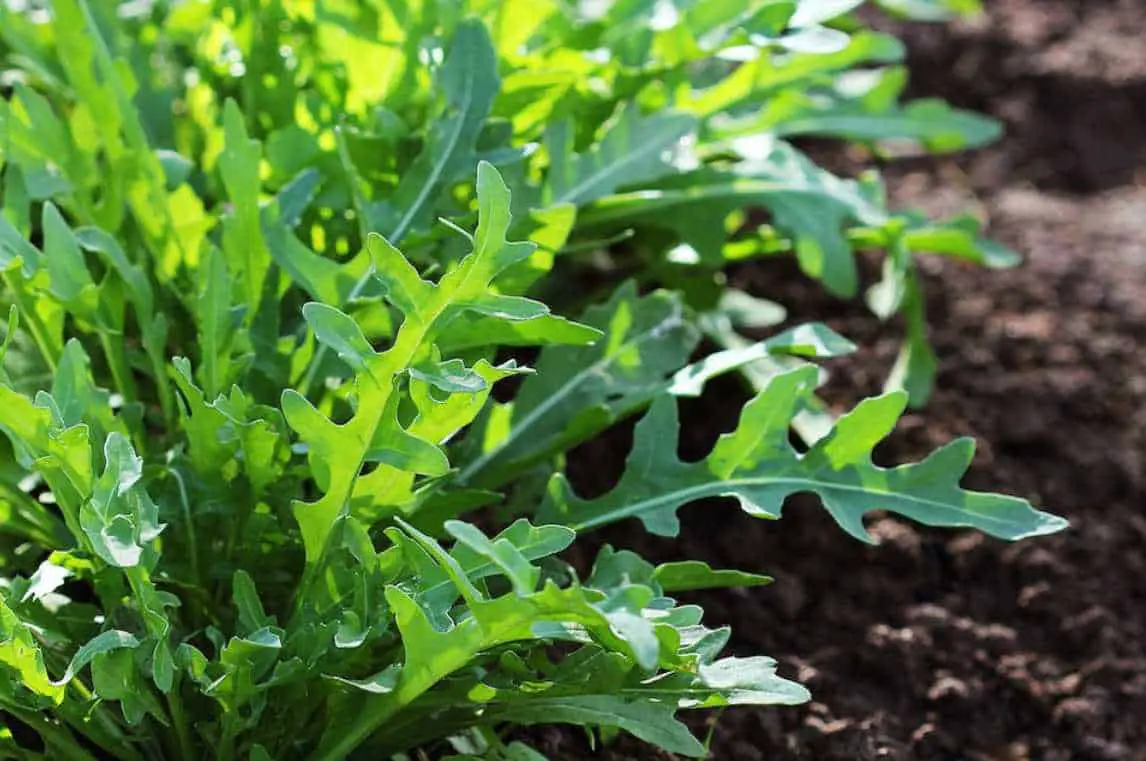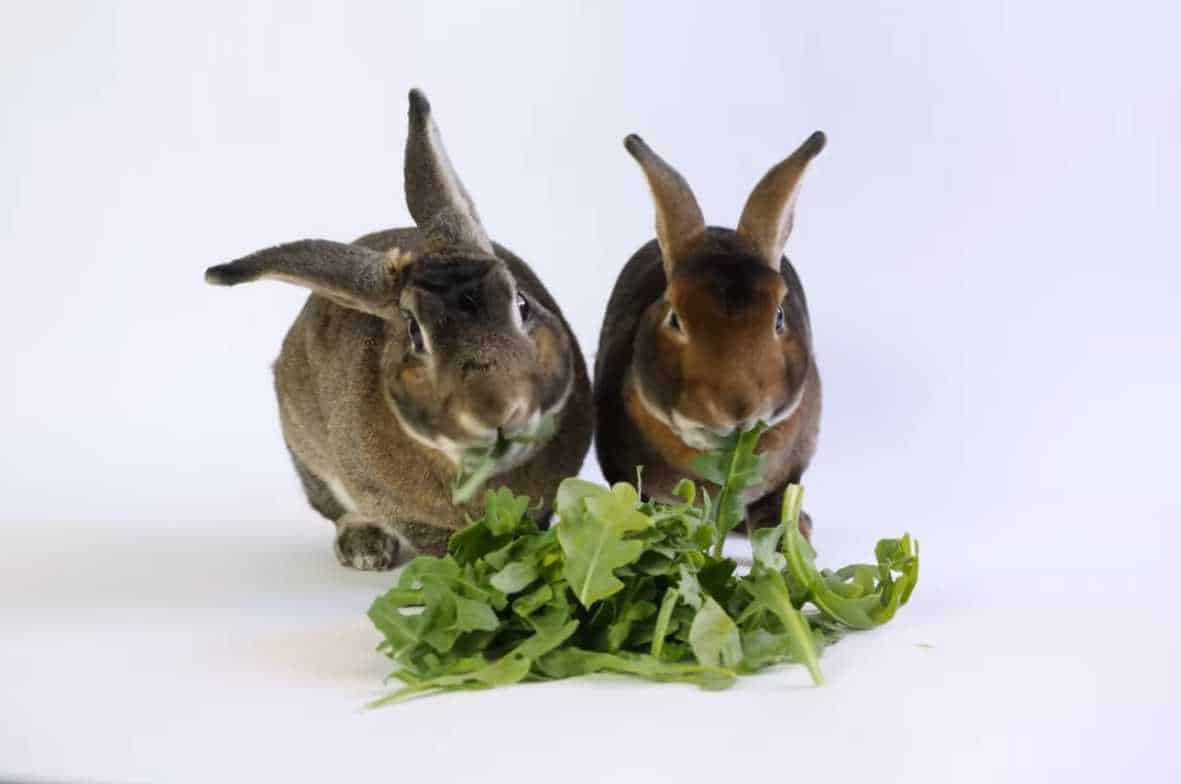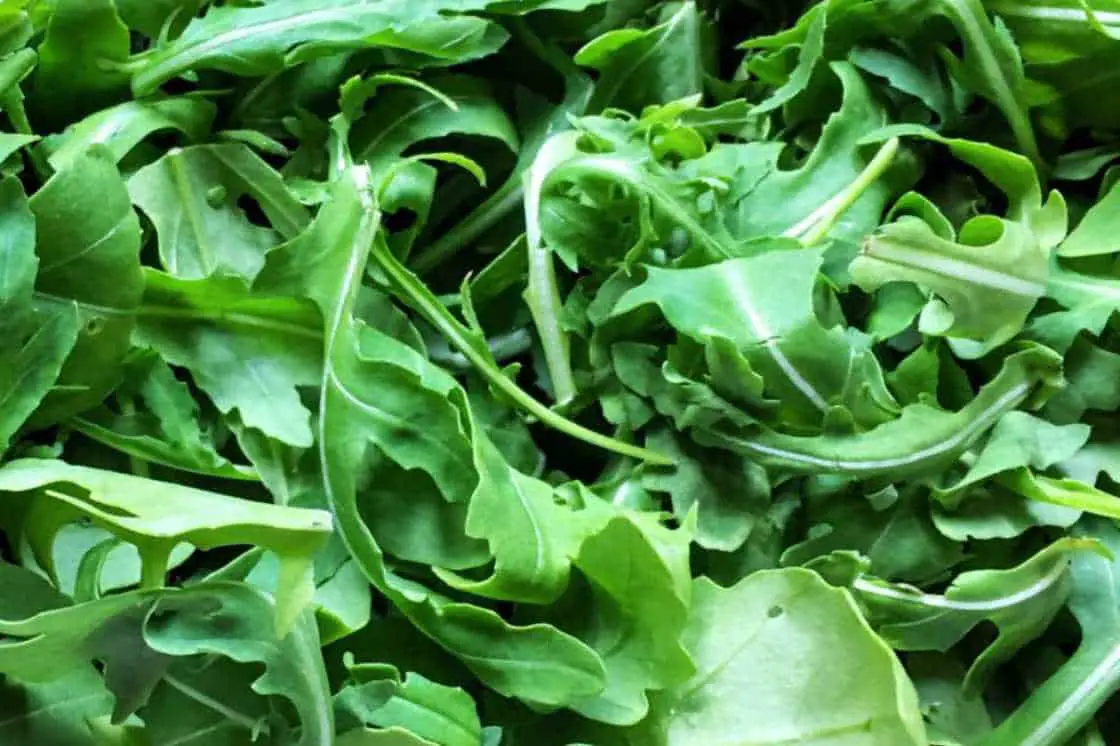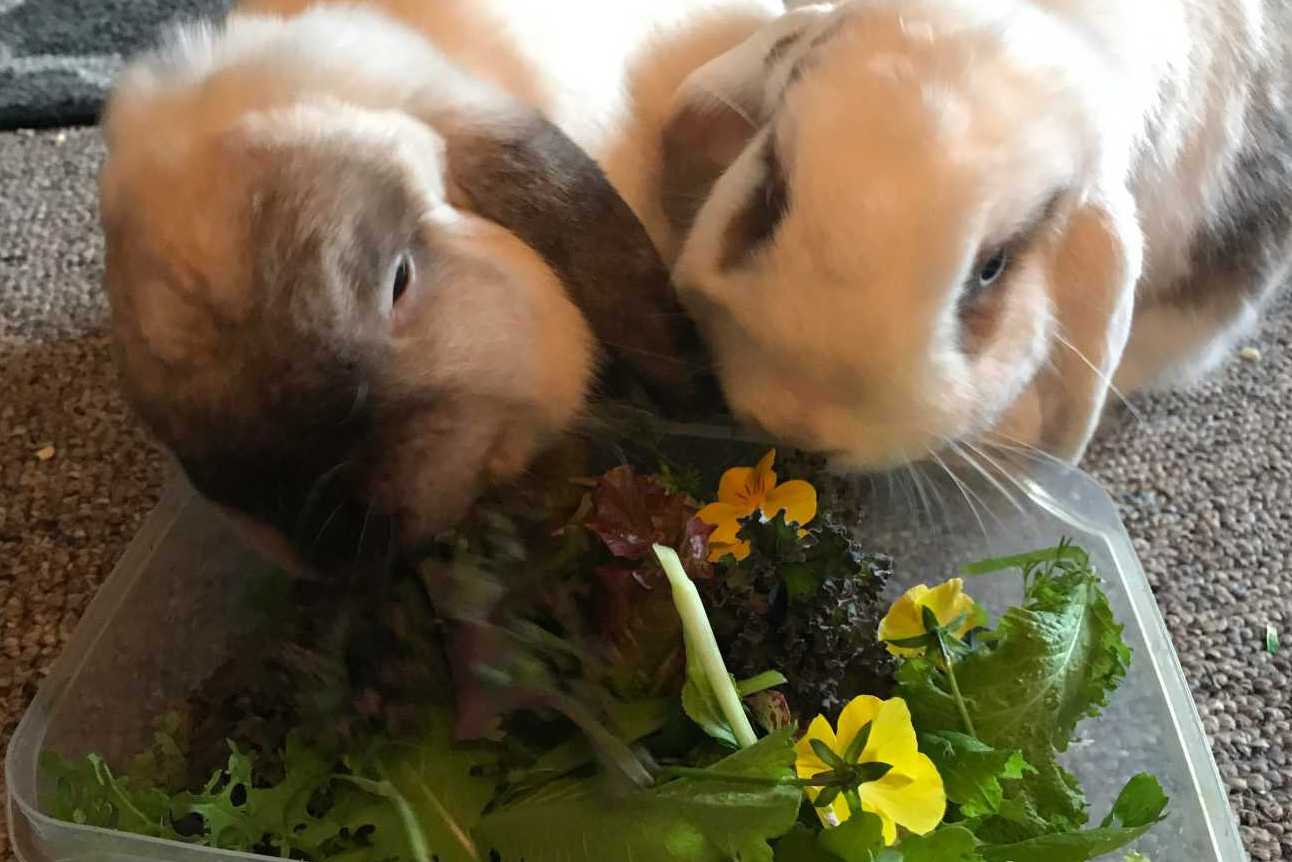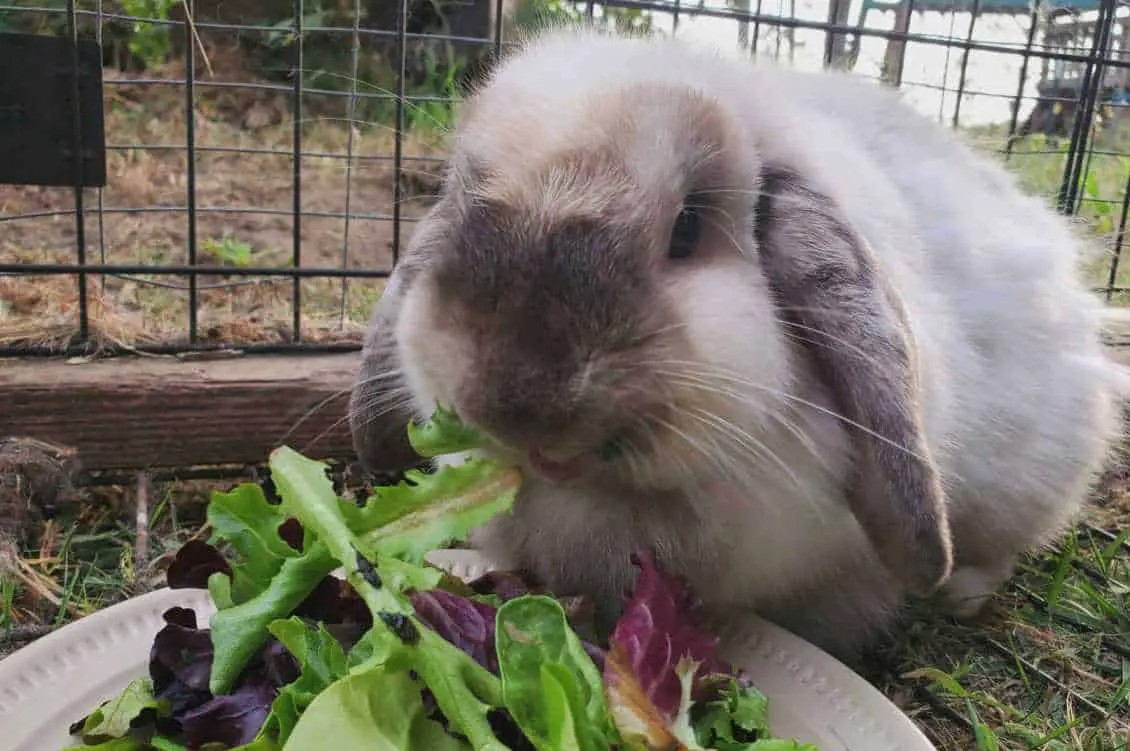Arugula is a prevalent salad ingredient. Since rabbits are known to eat and love other leafy vegetables such as cabbage and lettuce, one might ask: Can rabbits eat arugula?
Can Rabbits Eat Arugula?
Yes, rabbits can safely eat arugula. The vegetable is a good source of many vitamins and minerals such as potassium, calcium, and vitamin c. It’s also very cheap and accessible as a rabbit snack. As herbivores, the diet of rabbits is only composed of plants, flowers, and fruits. Since arugula is a type of shrubbery, it can be a treat for your pet.
Arugula or rocket is a prevalent ingredient for salads like other leafy greens. The vegetable is known for its peppery and tart taste. Fortunately, rabbits are fond of the taste of the arugula.
With that said, arugula should not be the primary source of nutrients for rabbits. It does not have the right amount of fiber to sustain rabbits. Rabbits should have a diet of hay and grass as their primary source of sustenance.
Can Kits Eat Arugula?
Kits cannot eat arugula. Rabbits under four months should be given a diet of grass and hay only. Rabbits under the age of maturity have a sensitive digestion system. Giving baby and juvenile rabbits arugula can cause irritation and adverse reaction to the digestive tract.
Can Wild Rabbits Eat Arugula?
Yes, wild mature rabbits can safely eat arugula. Like other rabbit-safe plants, rabbits tend to be invasive to the plants. If you have any arugula plants nearby, you might consider putting a rabbit repellant fence to keep them away.
Nutritional Value of Arugula
Carbohydrates | 4 g |
Fiber | 1.6 g |
Protein | 2.6 g |
Sugar | 2 g |
Vitamin C | 5 mg |
Potassium | 369 mg |
Vitamin A | 2373 amu |
Vitamin B-6 | 0.1 mg |
Magnesium | 47 mg |
Calcium | 160 mg |
Phosphorus | 52 mg |
Iron | 1.5 mg |
Fat | 0.7 g |
Sodium | 27 mg |
Nutritional approximation from USDA for one hundred grams or around one cup of arugula.
Calcium
Calcium is excellent for developing and maintaining bones and teeth in the body. Granted that rabbits rely heavily on their ability to jump and eat with their big teeth, calcium deficiency can be a big problem. Rabbits can develop malocclusion and bone problems when they lack calcium.
Vitamin C
Rabbits are very susceptible to disease and viral infections. Vitamin c can help them maintain and increase the effectiveness of their immune system. It also makes them less accessible and more protected against bacteria and viruses.
Potassium
Potassium is excellent for nerve health. The mineral also regulates the fluid balance inside of the rabbit’s body. It also helps regulate calcium production in the kidney, thus preventing kidney stones.
Magnesium
Along with fiber, magnesium helps with the absorption of nutrients. The mineral ensures that the rabbit will get the most out of its diet. It also regulates metabolic and enzymatic processes inside the digestive system.
Phosphorus
Phosphorus is an essential component of healthy and well-maintained teeth and bones. It lessens the risk of less bone density when the rabbit is gaining age.
When the rabbit experiences wear and tear in its bones, phosphorus is an excellent mineral that can aid with the recovery process. An increase in phosphorus also shows fewer risks for cardiovascular problems.
Do Rabbits Like Arugula?
Now that we know that rabbits can safely eat arugula, one might ask: do rabbits like arugula?
The answer is it will depend on the rabbit. Rabbits can have varying tastes and preferences. Even if one of your rabbits loves the vegetable, the other might not like it. It’s best to introduce arugula to your rabbits to ensure their enjoyment slowly.
The peppery taste akin to mint might turn off your rabbit from arugula. You do not have to worry as rabbits can be picky eaters. Young and old arugulas can also have a bitter aftertaste that might make them less appetizing to your pets.
With that said, there is a greater chance that your rabbit will like arugula. With its tart taste, it can be an excellent treat for bunnies.
What Parts of Arugula Should You Feed to Rabbits?
An arugula plant is mainly composed of three parts, leaves, stems, and white flowers. Fortunately, there are no arugula parts deemed dangerous for rabbit consumption. You can freely give rabbits any parts of the arugula plant.
The plant also contains high amounts of oxalic acid. Oxalic acid is vastly present in many plants, such as wood sorrel and rhubarb leaves. Although the chemical is known as a cleaning and bleaching substance, ingestion is not recommended.
If a large amount of oxalic acid is regularly ingested by rabbits, it can cause kidney disease. It triggers the production of calcium in the kidney and causes the production of kidney stones.
Arugula Feeding Tips
Before feeding the arugula to your rabbits, you must ensure its cleanliness first. To get the best quality arugula, reach out to farmers or plant your own. It decreases the risks of pesticide contamination and ensures that the vegetable is safe to consume.
If these options are not available, make sure that you get arugula from trusted sources. Once you get it, clean it thoroughly with running water. It will remove any grime or dirt that might have clung to the stems and leaves.
It’s best to give vegetables to rabbits sparingly. The rabbit’s diet must contain around ten to five percent vegetables. The lower vegetable intake is because they can’t get the proper amount of fiber, calcium, and protein from vegetables.
However, vegetables are rich in vitamins and minerals that rabbits can’t get from their diet of grass and hay. With arugula, you can get a high amount of potassium, calcium, phosphorus, and magnesium.
Feeding your rabbits around one hundred to two hundred grams a week is a sustainable portion. You can serve it with other fresh vegetables and plants.
However, do not feed the rabbit arugula every day. They need other vitamins and minerals from a varied group of vegetables. Providing them with arugula every day will keep them from having more nutrients.
When feeding arugula for the first time, make sure that the rabbit is at least seven months to a year old. As they mature, rabbits have a less sensitive digestive system. They also suffer fewer adverse effects from a new food that is introduced.
Introduce the arugula slowly. You can start from an eighth of a cup. Observe if the rabbit has any adverse effects such as bloating, diarrhea, and lethargy.
If there are adverse effects after feeding your rabbits with arugula, you must stop the consumption until the effects subside.
Pros and Cons of Feeding Arugula to Rabbits
Like with any diet, feeding arugula comes with its pros and cons. Here are some advantages and risks that you have to look out for.
Pros | Cons |
● Low calorie ● Lots of vitamins and minerals ● All parts of the plant are edible | ● Can cause diarrhea and bloat ● High oxalic content |
Pros of Arugula on Rabbits
Arugulas is very low on calories. They are great plants with low-fat content. Avan, if rabbits consume it regularly, they don’t have the risk of fattening the rabbit.
The plant also has many vitamins and minerals to help the rabbit develop a more healthy body. Various minerals such as calcium and phosphorus will help with the maintenance and health of the rabbit’s bones and teeth. Fiber and magnesium, on the other hand, are great for metabolism and absorption of nutrients.
Another advantage of arugula is that all parts of the plant are edible. If you have arugula plants, you don’t have to worry if your rabbit takes a small nibble as the flowers, stems, and leaves are safe for consumption.
Cons of Arugula on Rabbits
With all its advantages, arugula can also have some cons. Improper serving and consumption of the plant can lead to bloating and diarrhea. As with any vegetables, introducing arugula without proper precautions can adversely affect the rabbit’s digestive system.
Although arugula has many vitamins and minerals, it also has a high oxalic acid. Oxalic acid is a chemical that is present in many leafy green vegetables.
It triggers the production of calcium in the kidney, leading to kidney stones and kidney failure. It’s recommended not to mix the arugula with other leafy vegetables such as cabbage, kale, lettuce, and bok choy.
Other Vegetables You Can Feed Your Rabbits
Parsley
Much like arugula, parsley is known for its fragrant and sharp flavor. It contains a high number of nutrients, such as antioxidants and vitamins. It’s a good herb for preventing heart disease and cancer.
Basil
Basil provides antioxidants and detoxifies the rabbit’s body. It’s a good source of many vitamins and minerals to help your rabbit maintain its health and activeness.
In Conclusion
Rabbits can safely eat arugula or rocket leaves. As long as the consumption is well looked out for, the rabbit can acquire many vitamins and minerals without any adverse effects. We hope this overview of can rabbits eat arugula helps you tremendously.
